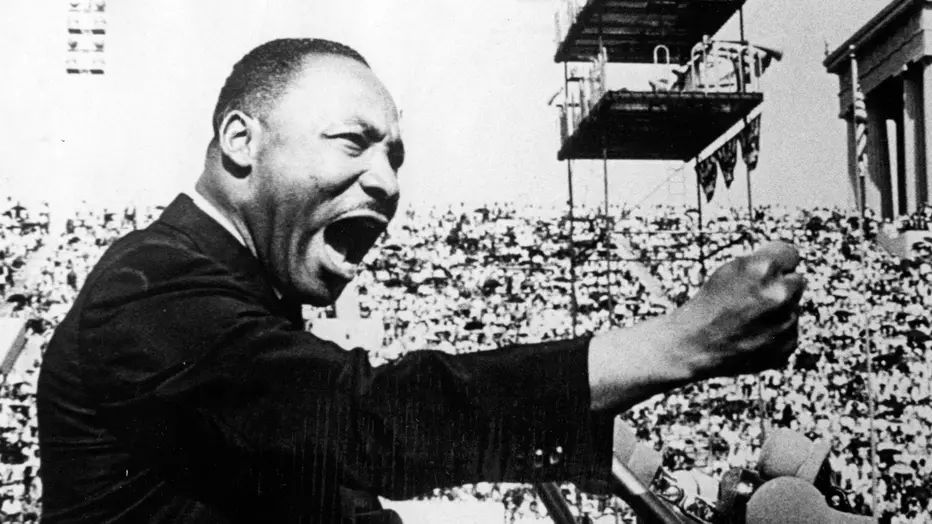Table of Contents
Introduction:
Martin Luther King Jr. stands as an enduring symbol of courage, compassion, and conviction in the fight for justice and equality. As a pivotal figure in the American civil rights movement, King’s legacy transcends time and borders, inspiring generations to strive for a world where all individuals are judged by. In this comprehensive article, we delve into the life, achievements, and enduring impact of Martin Luther King Jr., exploring his leadership, activism, and vision for a beloved community of peace and equality.
Early Life and Influences:

Explore Martin Luther King Jr.’s upbringing in Atlanta, Georgia, and the formative experiences that shaped his commitment to social justice and nonviolent resistance.
Discuss the influence of King’s family, faith, and education on his development as a moral leader and advocate for civil rights.
Examine the impact of King’s encounters with racial discrimination and segregation, including his experiences growing up in the Jim Crow South and witnessing acts of injustice and inequality.
Leadership in the Civil Rights Movement:
Trace Martin Luther King Jr.’s emergence as a leader in the civil rights movement, from his leadership role in the Montgomery Bus Boycott to his founding of the Southern Christian Leadership Conference (SCLC).
Explore King’s philosophy of nonviolent resistance and civil disobedience, influenced by the teachings of Mahatma Gandhi and Christian principles of love, forgiveness, and reconciliation.
Discuss King’s role in organizing and leading nonviolent protests, marches, and demonstrations to challenge segregation, discrimination, and voter suppression laws across the United States.
The March on Washington and “I Have a Dream”:
Examine the significance of the March on Washington for Jobs and Freedom in 1963, where Martin Luther King Jr. delivered his iconic “I Have a Dream” speech.
Analyze the themes of King’s speech, including his vision of a future where racial harmony and equality prevail, and his call to end racial injustice and discrimination.
Discuss the impact of King’s words on the civil rights movement and their enduring resonance as a rallying cry for justice, equality, and human dignity.
Advocacy for Civil Rights Legislation:

Explore Martin Luther King Jr.’s advocacy for civil rights legislation, including the Civil Rights Act of 1964 and the Voting Rights Act of 1965.
Discuss King’s role in mobilizing public support for legislative change through grassroots organizing, public speeches, and strategic alliances with political leaders and civil rights organizations.
Analyze the impact of civil rights legislation on dismantling segregation and expanding voting rights for African Americans, and the ongoing challenges and obstacles to achieving racial equality.
Beyond Civil Rights: King’s Legacy of Peace and Justice:
Examine Martin Luther King Jr.’s broader vision of social justice and economic equality, including his advocacy for labor rights, affordable housing, and economic opportunity for all.
Discuss King’s opposition to war and militarism, including his outspoken criticism of the Vietnam War and his advocacy for peace, disarmament, and international cooperation.
Explore King’s commitment to addressing systemic poverty, inequality, and injustice through his Poor People’s Campaign and calls for a radical restructuring of society based on principles of economic justice and human dignity.
Legacy and Impact:

Reflect on Martin Luther King Jr.’s enduring legacy as a moral leader, peacemaker, and champion of justice and equality.
Discuss the impact of King’s leadership and activism on the civil rights movement and the broader struggle for human rights and social justice around the world.
Examine the ways in which King’s teachings and principles continue to inspire individuals and movements fighting for racial equality, nonviolence, and social change in the 21st century.
Commemoration and Remembrance:
Explore the ways in which Martin Luther King Jr. is commemorated and remembered, including the establishment of Martin Luther King Jr.
Discuss the significance of monuments, memorials, and educational initiatives dedicated to preserving King’s memory and promoting his legacy of peace, justice, and equality.
Reflect on the importance of ongoing dialogue and engagement with King’s teachings and principles to confront contemporary challenges of racism, poverty, and violence in society.
Conclusion:
Martin Luther King Jr.’s life and legacy serve as a beacon of hope and inspiration in the ongoing struggle for justice, equality, and human rights. As we honor his memory and commemorate his achievements, let us reaffirm our commitment to advancing the causes to which he dedicated his life: the pursuit of peace, the eradication of poverty, and the realization of a world where all individuals are treated with dignity, respect, and equality. In the words of Martin Luther King Jr., “The time is always right to do what is right.”
For More Information Please Visit These Websites Mindmeister